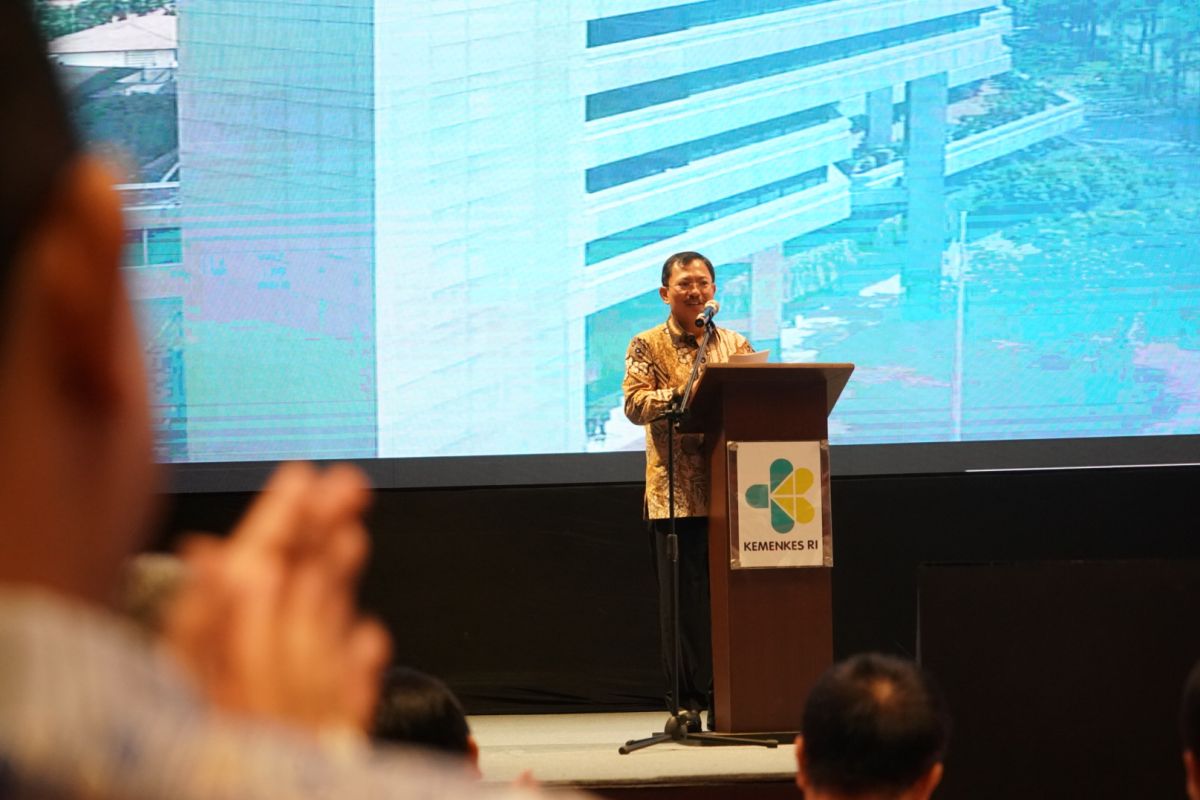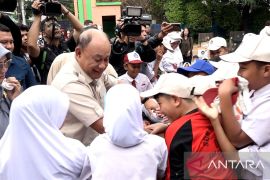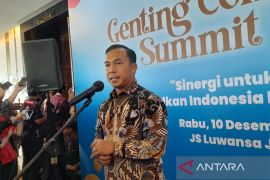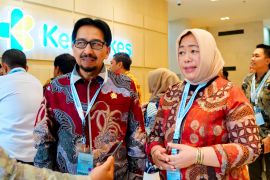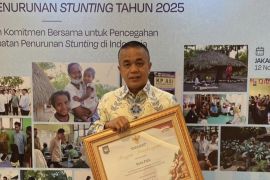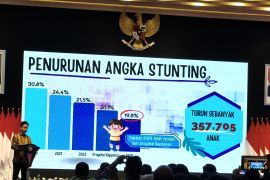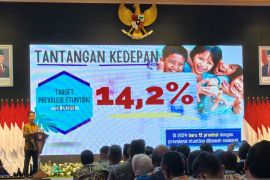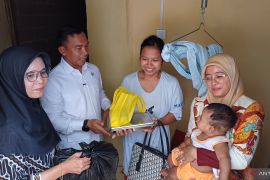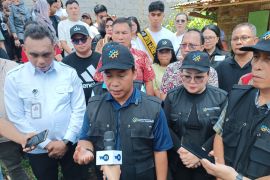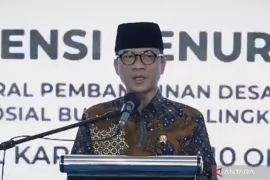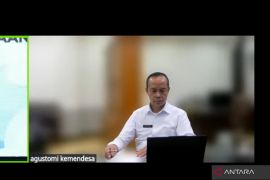The government had designed a program to expedite stunting prevention in a convergent manner by conducting specific and sensitive interventions, the minister noted in his speech at the 2020 National Working Meeting on Health at the JIEXPO Hall here on Wednesday.
Specific interventions are the responsibility of the Ministry of Health by conducting various health-related activities, while sensitive interventions concerning the availability of food, clean water, and sanitation; community empowerment; and improvement of care at the family and community level, as well as the welfare of the poor are the responsibility of other ministries.
The availability of food resources requires collaboration and program synergy involving the Ministry of Agriculture; Ministry of Villages, Development of Disadvantaged Regions, and Transmigration; and the Ministry of Home Affairs.
Related news: Ministry to coordinate on stunting, poverty eradication programs
Related news: Ma'ruf Amin chairs meeting on stunting, poverty eradication efforts
Community empowerment requires cooperation and program synergy with the Ministry of Villages, Disadvantaged Regions and Transmigration as well as the Ministry of Home Affairs.
The Ministry of Religion and the Ministry of Education and Culture are tasked with boosting care at the family and community level.
"Such collaboration is believed to be crucial owing to the specific interventions that are the responsibility of the Ministry of Health that only contribute 30 percent in handling the problem of stunting, while 70 percent are multisectoral contributions in the form of sensitive interventions," Putranto remarked.
He also emphasized that cross-sectoral support was critical to reducing the maternal and infant mortality rates.
Moreover, the minister stressed on the need for commitment and support across ministries for the success of women's empowerment and 12-year compulsory education programs.
Putranto opined that this can be realized through collaboration and synergy with the Ministry of Religion and the Ministry of Education and Culture.
Meanwhile, the prevention of child marriages must be carried out in collaboration with the Ministry of Religion, the Ministry of Home Affairs, and the Ministry of Education and Culture.
The collaboration of the Ministry of Villages, Development of Disadvantaged Areas, and Transmigration is deemed necessary to drive the role of women in socio-economics, while the Ministry of Education and Culture, the Ministry of Religion, and the Ministry of Home Affairs collaborate in improving the reproductive health of adolescents and brides as well as stepping up the role of community leaders and religion.
"The role of regional governments in coordinating with local organizations still poses a challenge that we need to work together to handle in order to get more optimal results," he added. Related news: Integrated teams to be set up to cut stunting rate in 160 districts
Related news: President targets 14-percent reduction in stunting rate in five years
Translator: Aditya R, Fardah
Editor: Yuni Arisandy Sinaga
Copyright © ANTARA 2020
